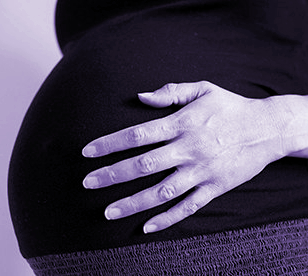Pregnant diets mapped
 A poor diet during pregnancy may lead to obesity in kids.
A poor diet during pregnancy may lead to obesity in kids.
A new study from the UK has found that eating a low-quality diet, high in foods and food components associated with chronic inflammation, during pregnancy may be associated with an increased risk of obesity and excess body fat in children, especially during late-childhood.
“Mounting evidence suggests that maternal diet influences pregnancy and birth outcomes and points to the first one thousand days of a child’s life, from conception to two years old, as a critical period for preventing childhood obesity,” says researcher Dr Ling-Wei Chen.
“Our research indicates that children born to mothers who eat a low-quality diet, high in inflammation-associated foods, during pregnancy may be more likely to have obesity or excess body fat in late childhood than those born to mothers who eat a high-quality diet low in inflammation-associated foods.”
The research was based on analysis of data collected from 16,295 mother-child pairs in seven European birth cohort studies, from Ireland, France, United Kingdom, Netherlands and Poland.
The researchers found that children born to mothers who ate diets high in foods associated with inflammation throughout pregnancy tended to have lower levels of fat-free body mass, indicating lower levels of muscle mass, in late-childhood than those whose mothers ate diets low in inflammation-associated foods.
Previous research has found that low levels of muscle mass may be associated with a higher risk of combined diabetes, high blood pressure, and obesity.
An association between a lower quality maternal diet, high in inflammation-associated foods, and lower levels of fat-free body mass in late-childhood was found to be stronger in boys than in girls.
An association between lower quality maternal diet, high in inflammation-associated foods, and higher body fat levels in mid-childhood was stronger in girls than in boys.








 Print
Print